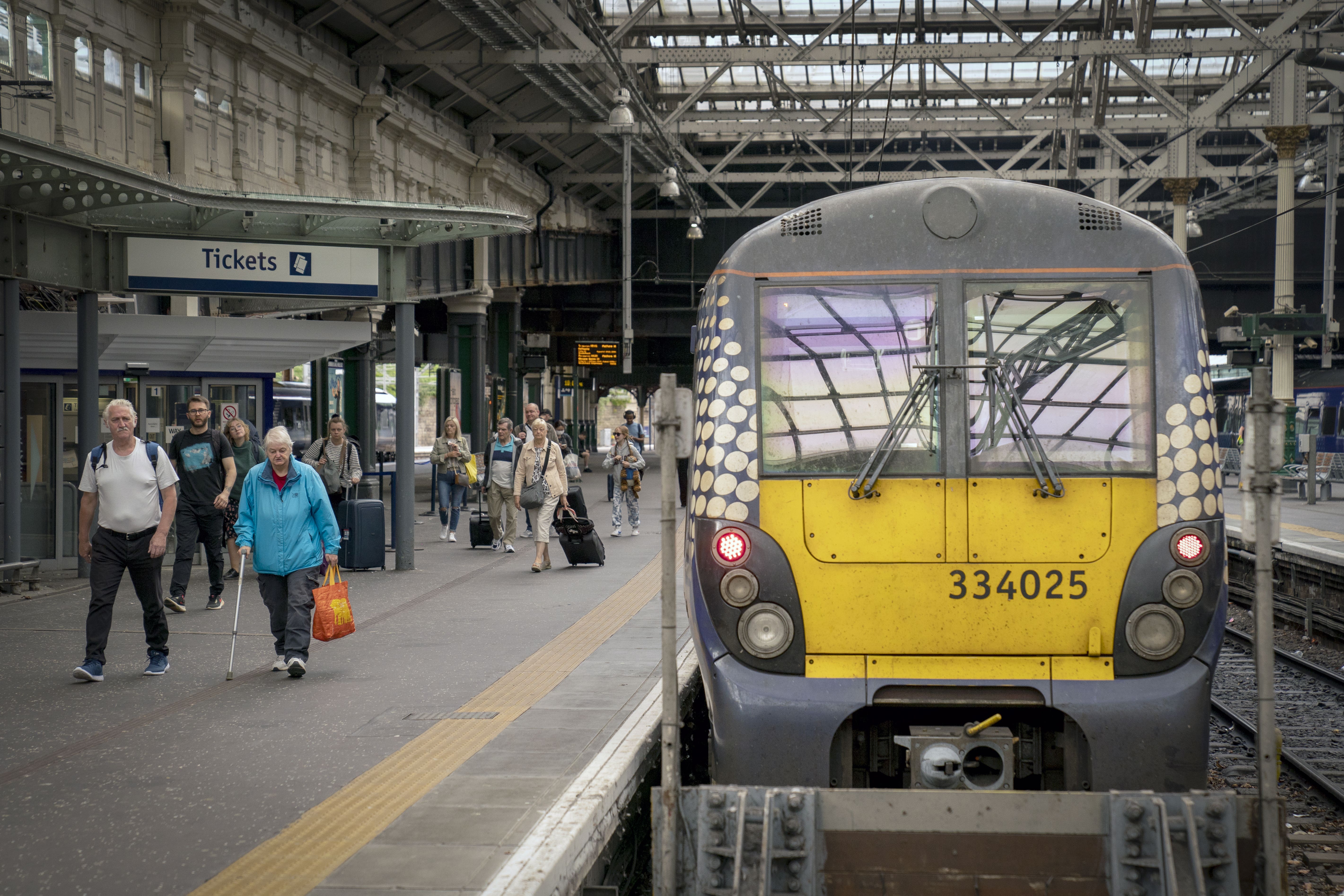Jenny Gilruth: Minimum service level transport Bill is threat to devolution
The legislation aims to ensure a minimum service level during transport strikes.

Legislative proposals to impose minimum service levels on transport networks during strikes erode devolution, Scotland’s transport minister has said.
Jenny Gilruth said the Scottish Government will not support the Transport Strikes (Minimum Service Levels) Bill which aims to place restrictions on trade union industrial action.
It follows numerous rail strikes in recent months as workers campaign for better pay and conditions.
The Bill would mean employers could specify the number of staff required to meet an adequate service level during strikes.
Specified workers who still take strike action will lose their protection from automatic unfair dismissal, the proposals say.
But Ms Gilruth said the Bill would not respect the Scottish Government’s Fair Work principles of an effective voice, fulfilment, opportunity, respect and security.
She said: “This would be an unacceptable erosion of the Scottish Government’s devolved responsibility for transport in Scotland.”
Scottish ministers are subsequently urging the UK Government to exclude Scotland from the Bill’s plans, with Ms Gilruth adding that the proposals have “no democratic mandate”.
The UK Government’s introduction of this wholly unwelcome Transport Strikes (Minimum Service Levels) Bill is very likely to inflame rather than help resolve legitimate industrial disputes which therefore will act against the interest of the travelling public
Ms Gilruth said: “It is clear the UK Government’s Bill infringes on workers’ fundamental employment rights and I am deeply concerned that the Bill would appear to grant powers to the UK Secretary of State to impose minimum service levels on transport operators and trade unions in Scotland.”
She added: “As Governments, we should be working with the transport operators and the trade unions to reach fair and reasonable settlements respecting the legitimate interest of workers and transport organisations.
“The UK Government’s introduction of this wholly unwelcome Transport Strikes (Minimum Service Levels) Bill is very likely to inflame rather than help resolve legitimate industrial disputes which therefore will act against the interest of the travelling public.
“Scottish ministers would urge the UK Government to exclude Scotland from the Transport Strikes (Minimum Service Levels) Bill because there is no democratic mandate for the proposed approach in Scotland.
“Better still, the next Prime Minister who is appointed should instruct their Transport Minister to drop this Bill altogether.”
Transport Secretary Anne-Marie Trevelyan said: “Strikes have affected nearly all of us over this last year – whether that means losing out on a day’s pay at work, having to close your business, missing vital medical appointments or stopping our children from getting to school.
“It is vital that public transport users have some continuity of service to keep Britain moving and growing – this legislation will give everyone the certainty they need to carry on with their daily lives.”
Bookmark popover
Removed from bookmarks